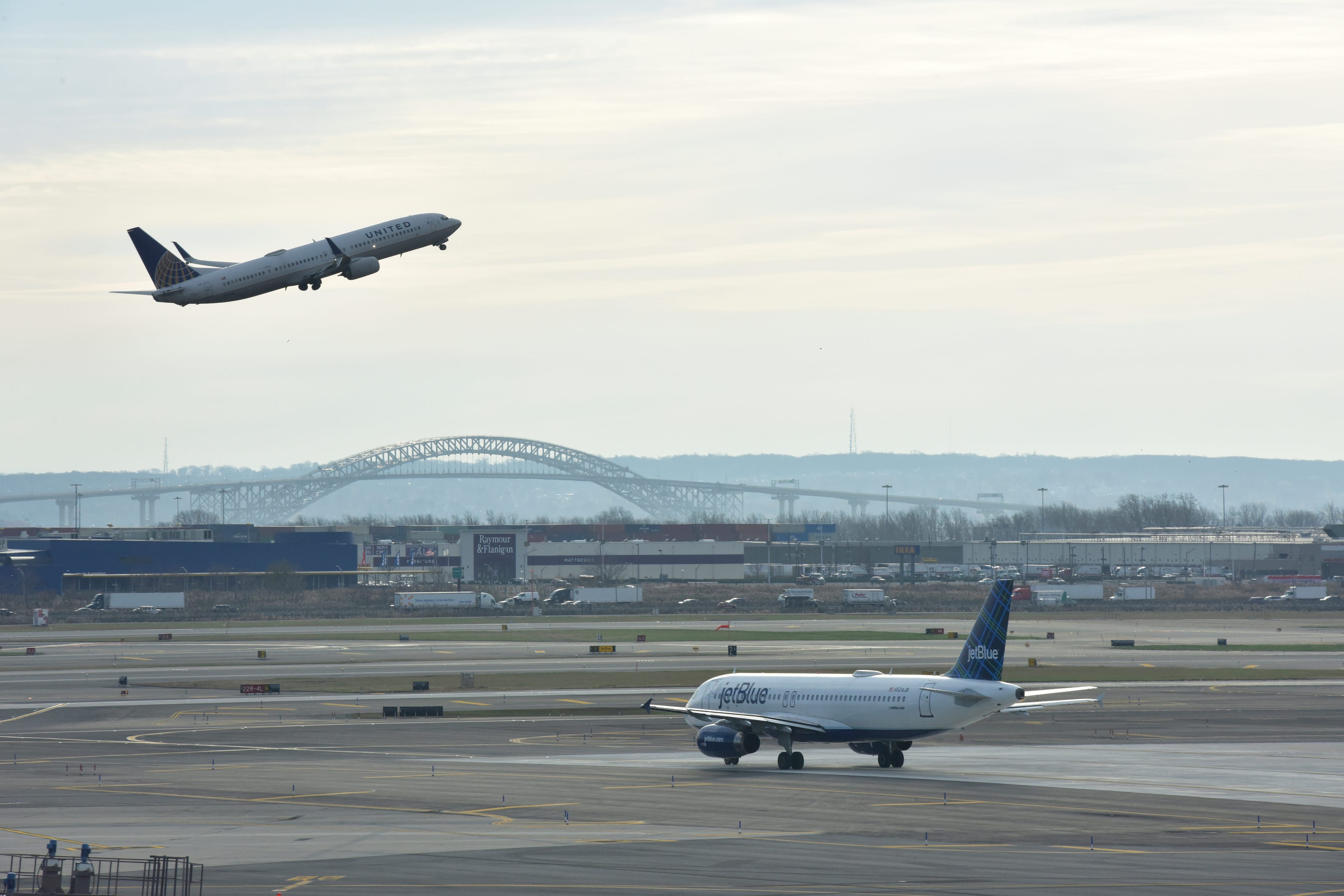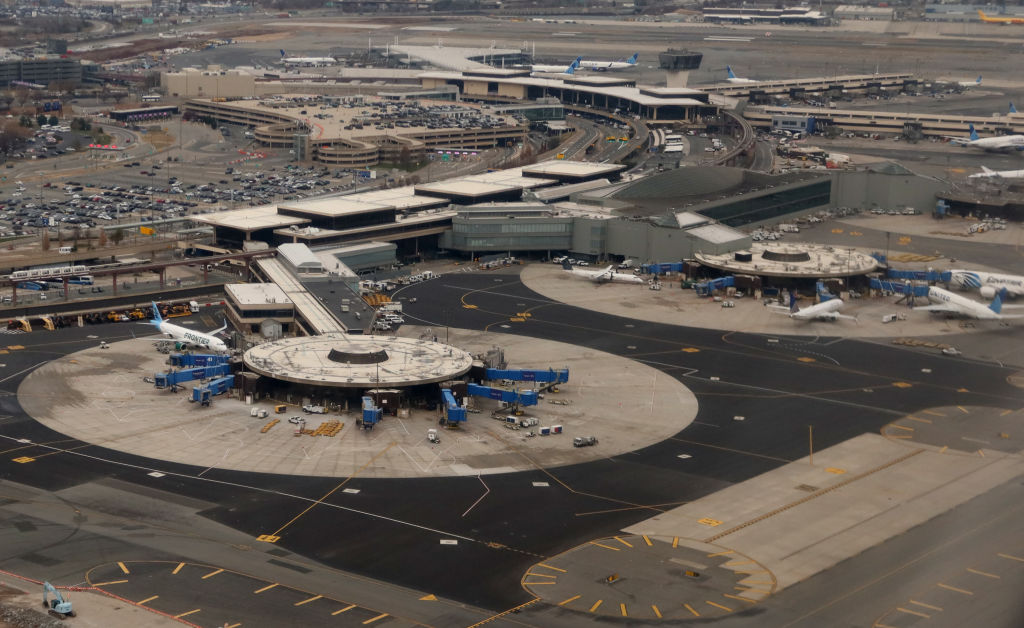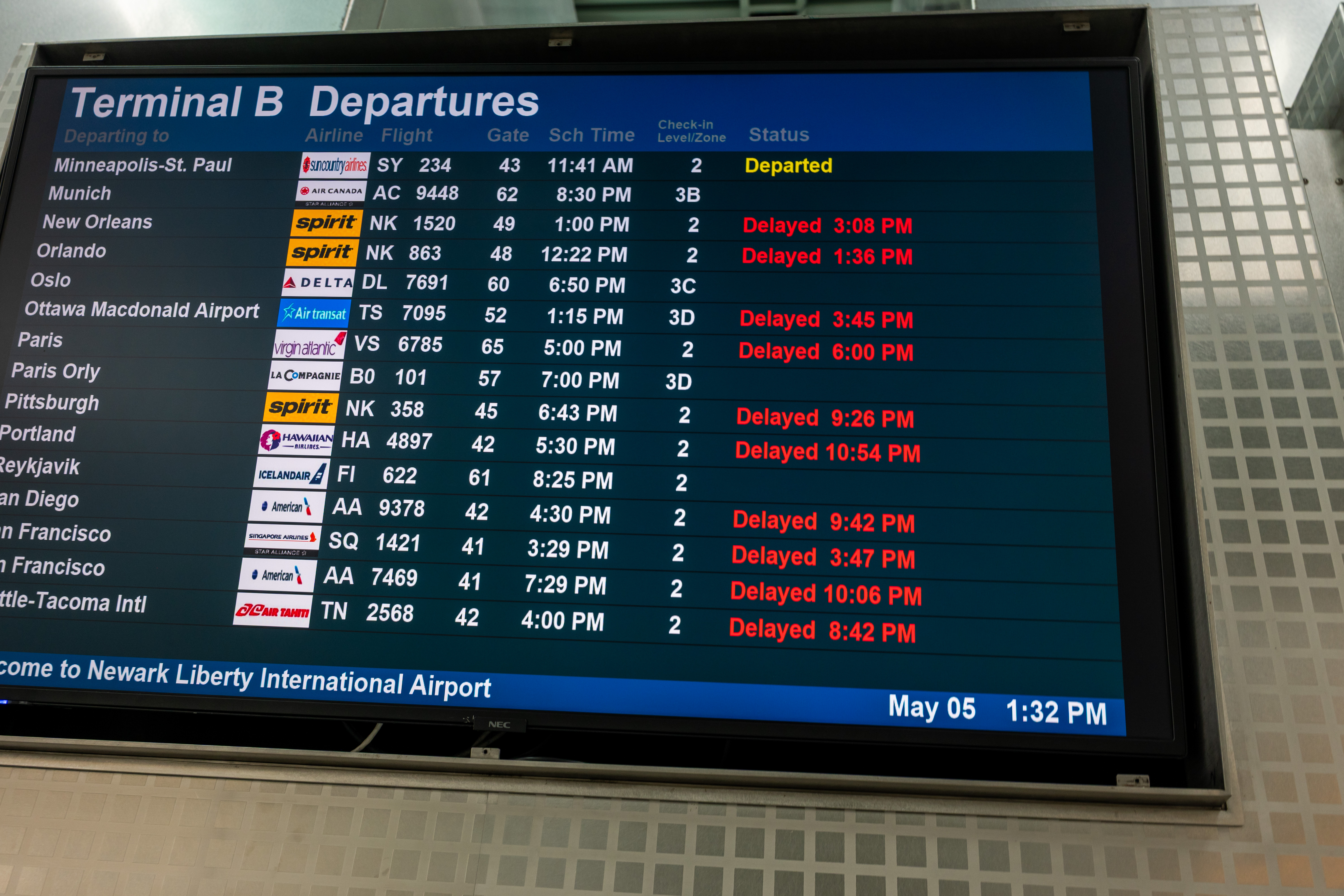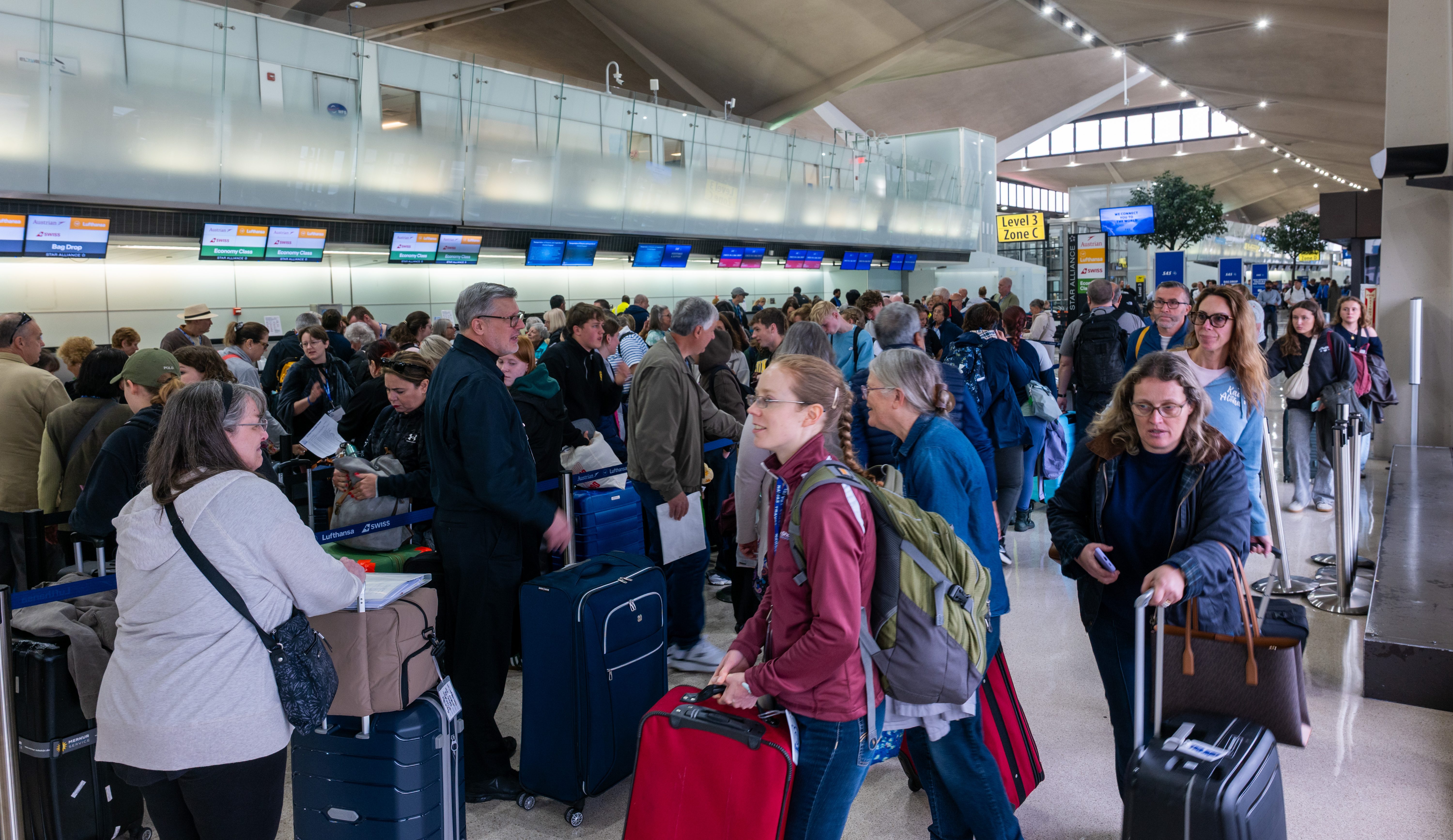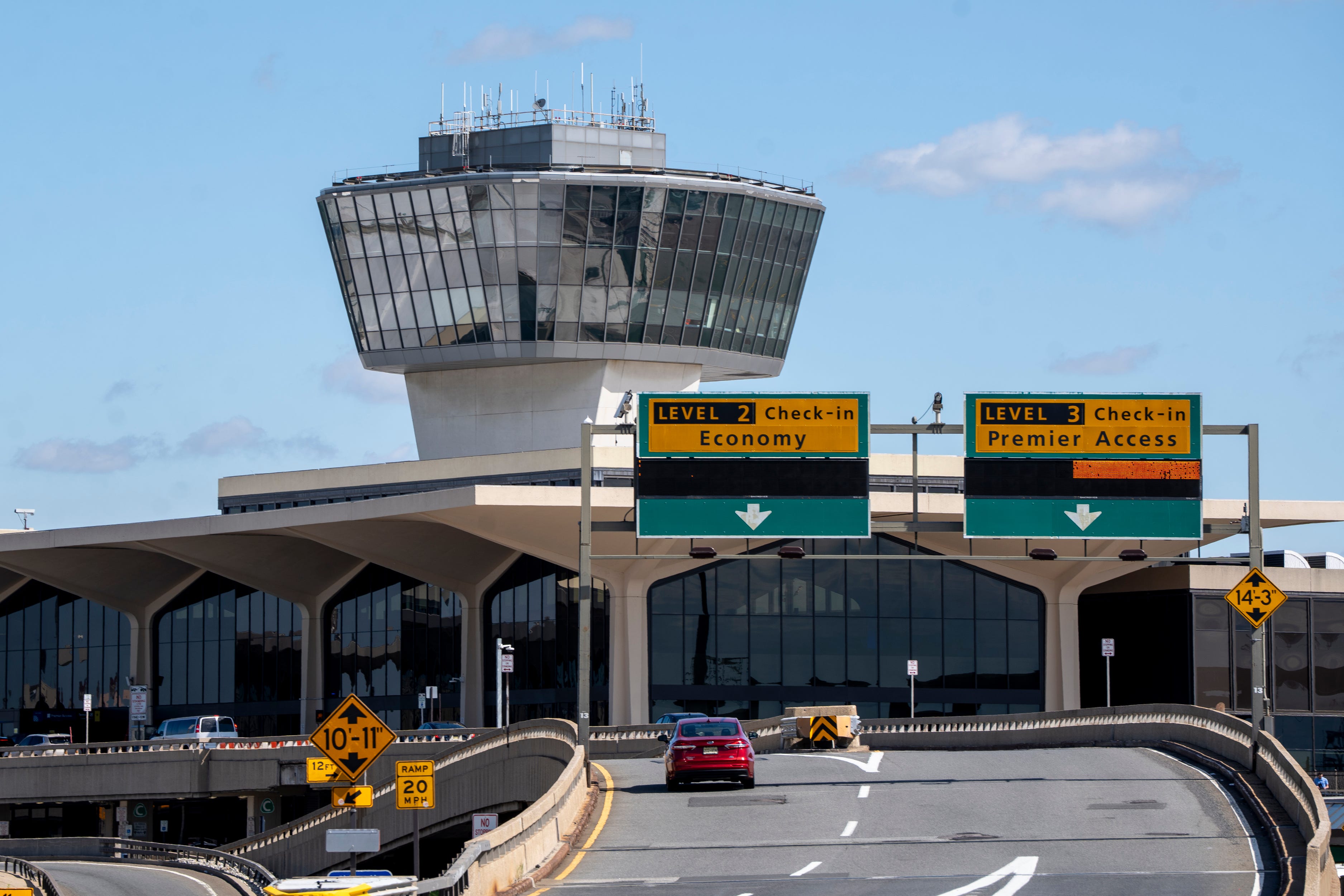Newark Flight Delays: Track NYC Area Airport Cancellations
Is Your Flight Grounded? Newark & NYC Airport Delay Tracker
Navigating the Turbulence: Flight Delays at NYC Airports
Flying in or out of the New York City area can be an adventure, to say the least. But sometimes, that adventure includes unexpected turbulence – and we're not just talking about the ride! Flight delays and cancellations are a common headache, especially at major hubs like Newark Liberty International Airport (EWR) and its neighboring airports. Are you currently staring at a departure board, wondering when, or even *if*, you'll be taking off? You're not alone. This article is your guide to staying informed and prepared amidst the chaos.
According to the FAA, flights into and out of Newark Airport are experiencing heavy delays. Technical issues and staffing shortages are reportedly the culprits. These issues have been plaguing the airport for several days, leaving many travelers frustrated and scrambling to adjust their plans.
So, let's dive into what's happening at Newark and other NYC area airports, what's causing the delays, and how you can stay one step ahead of the curve.
Understanding the Newark Airport Situation
The Root Causes of the Delays
Why is Newark Liberty International Airport experiencing so many delays? According to reports, the FAA points to a combination of technical glitches and staffing shortages. But what does that really mean for you, the traveler?
Technical issues can range from problems with air traffic control systems to difficulties with the airport's own infrastructure. Staffing shortages, on the other hand, can affect everything from baggage handling to security checkpoints. Either way, the result is the same: longer wait times and potential flight disruptions. These issues are compounded by the high volume of traffic that Newark handles, making it particularly susceptible to delays when even minor problems arise.
How Long Will These Delays Last?
That's the million-dollar question, isn't it? Unfortunately, there's no easy answer. The duration of delays can depend on how quickly the technical issues are resolved and how effectively staffing levels can be adjusted. It's a bit like waiting for a traffic jam to clear – you can see the problem, but you have no control over when it will finally dissipate. The best course of action is to stay informed, check your flight status regularly, and prepare for potential disruptions.
Checking Your Flight Status: A Step-by-Step Guide
Don't just sit there and stew! Take action by actively monitoring your flight's status. Here's how:
- Airline Websites/Apps: The most reliable source of information is usually the airline itself. Most airlines have real-time flight trackers on their websites or within their mobile apps.
- FlightAware: This website provides comprehensive flight tracking data, including delays, cancellations, and even the aircraft's location.
- FlightStats: Another popular flight tracking website with detailed information on flight status and airport conditions.
- Airport Websites: The official websites for Newark Liberty International Airport (EWR), John F. Kennedy International Airport (JFK), and LaGuardia Airport (LGA) often provide updates on delays and cancellations.
- FAA Website: Check the FAA's website for general information about airport conditions and potential air traffic control-related delays.
Navigating the NYC Area Airport Landscape
Newark Liberty International Airport (EWR)
Located in New Jersey but serving the New York metropolitan area, Newark is a major international hub. Airlines operating at Newark include:
- Aer Lingus
- Air Canada
- Air China
- Air India
- Alaska Airlines
- Allegiant
- American Airlines
- Austrian Airlines
- Avianca
- British Airways
- Cathay Pacific
- Delta
- El Al
- Elite Airways
- Emirates
- Ethiopian Airlines
- Eurowings
- Frenchbee
- Frontier
- Icelandair
- JetBlue
- La Compagnie
John F. Kennedy International Airport (JFK)
JFK, located in Queens, is another major international gateway. It's known for its extensive international routes and numerous terminals. If you have a choice, flying into JFK might offer more alternative routes if Newark is heavily delayed. Keep in mind, however, that JFK can also experience delays of its own.
LaGuardia Airport (LGA)
LaGuardia, also in Queens, primarily serves domestic destinations. It's often favored for shorter flights within the United States. While LGA might seem like a smaller alternative, it's still susceptible to delays due to weather and air traffic congestion.
What to Do If Your Flight Is Delayed or Canceled
Stay Calm and Assess Your Options
The first rule of travel emergencies? Don't panic! Take a deep breath and assess your options. Getting stressed won't speed up your flight.
Contact Your Airline Immediately
Your airline is your primary point of contact. They can provide you with the most up-to-date information about your flight and help you rebook or find alternative arrangements. Don't hesitate to call, even if you've already checked online.
Explore Alternative Flights
If your flight is canceled, ask the airline about alternative flights to your destination. Be flexible with your travel dates and times – you might need to fly a day earlier or later, or connect through a different city.
Consider Alternative Airports
If flying into Newark isn't an option, consider flying into JFK or LGA instead. You might need to take a taxi or public transportation to your final destination, but it could be worth it to avoid a lengthy delay.
Know Your Rights
Depending on the reason for the delay or cancellation, you may be entitled to compensation from the airline. The rules vary depending on the airline and the country of origin/destination, so do your research.
Tips for Staying Comfortable During Delays
Pack Smart
When flying, especially during peak travel times, it's always a good idea to pack a carry-on bag with essentials. This should include:
- Medications
- Snacks and drinks
- A phone charger
- A book or other entertainment
- A travel pillow and blanket
Stay Hydrated and Nourished
Airports can be dry and stressful environments. Make sure to drink plenty of water and eat regular meals to stay energized and focused.
Find a Comfortable Place to Relax
If you have a long delay, find a comfortable place to sit or lie down. Some airports have designated rest areas or lounges where you can relax and recharge.
Use Airport Amenities
Take advantage of airport amenities such as free Wi-Fi, charging stations, and restaurants. You can also explore the shops and art installations to pass the time.
Travel Insurance: Your Safety Net
What Does Travel Insurance Cover?
Travel insurance can provide coverage for a variety of travel-related issues, including:
- Flight delays and cancellations
- Lost or delayed baggage
- Medical emergencies
- Trip interruptions
Is Travel Insurance Worth It?
Whether or not travel insurance is worth it depends on your individual circumstances. If you're traveling during peak season, have pre-existing medical conditions, or are concerned about potential disruptions, travel insurance can provide peace of mind.
Choosing the Right Travel Insurance Policy
When choosing a travel insurance policy, be sure to compare coverage levels, deductibles, and exclusions. Read the fine print carefully to ensure that the policy meets your needs.
Leveraging Technology for Smooth Travel
Mobile Apps for Flight Tracking and Airport Navigation
There are countless mobile apps available that can help you track your flight status, navigate airports, and find amenities. Some popular options include:
- FlightAware
- FlightStats
- GateGuru
- LoungeBuddy
Social Media for Real-Time Updates
Follow your airline and the airport on social media for real-time updates and announcements. You can also use social media to ask questions and get assistance from customer service representatives.
Using Wi-Fi to Stay Connected
Take advantage of free Wi-Fi at the airport to stay connected with family and friends, check your email, and browse the internet.
The Future of Air Travel in NYC: What to Expect
Infrastructure Improvements and Technological Advancements
NYC area airports are constantly undergoing improvements and upgrades to enhance the passenger experience and reduce delays. These include new terminals, improved baggage handling systems, and advanced air traffic control technologies.
Addressing Staffing Shortages
Airlines and airports are working to address staffing shortages by offering competitive wages and benefits, streamlining hiring processes, and investing in training programs.
Sustainability Initiatives
Airports and airlines are also committed to reducing their environmental impact through sustainability initiatives such as using renewable energy, reducing waste, and investing in more fuel-efficient aircraft.
Alternative Transportation Options
Trains
Train services like Amtrak and regional rail lines can offer a reliable alternative to flying, especially for shorter distances. They are often less susceptible to weather-related delays than air travel. However, make sure to factor in travel time to and from the train station.
Buses
Bus services are a budget-friendly option for traveling between cities. While buses can be slower than flying or taking the train, they can be a convenient choice for certain routes.
Driving
Driving can be a good option if you prefer to have more control over your travel schedule. However, be prepared for traffic congestion and parking challenges, especially in major cities.
Travel Hacks to Minimize Disruptions
Flying Early in the Day
Flights that depart early in the morning are generally less likely to be delayed than flights that depart later in the day. This is because there is less air traffic congestion early in the morning.
Choosing Non-Stop Flights
Non-stop flights eliminate the risk of delays associated with connecting flights. They are also less likely to be affected by weather conditions at other airports.
Building Buffer Time into Your Itinerary
When planning your trip, build in some extra time to account for potential delays. This will help you avoid missing connecting flights or important events.
Understanding Airline Compensation Policies
What Are You Entitled To?
If your flight is delayed or canceled, you may be entitled to compensation from the airline. The amount of compensation depends on the length of the delay, the reason for the delay, and the airline's policies. For example, within the EU, passengers are often entitled to financial compensation for significant delays. Always check the specific airline's policy.
How to File a Claim
To file a claim for compensation, contact the airline's customer service department. Be prepared to provide documentation such as your flight itinerary, boarding pass, and any expenses incurred as a result of the delay.
Third-Party Services that Can Help
Several third-party services can help you file a claim for compensation and navigate the airline's policies. These services typically charge a fee for their assistance.
Conclusion: Staying Informed and Prepared
Flight delays and cancellations are an unfortunate reality of air travel, especially in busy hubs like Newark and other NYC area airports. However, by staying informed, being prepared, and knowing your rights, you can minimize the stress and inconvenience of these disruptions. Remember to check your flight status regularly, pack smart, and consider travel insurance to protect yourself from unexpected events. With a little planning and a positive attitude, you can navigate the turbulence and reach your destination safely and smoothly. Ultimately, patience and adaptability are your best allies.
Frequently Asked Questions
Q1: What is the best way to check my flight status?
A1: The most reliable ways to check your flight status are through the airline's website or mobile app, or through flight tracking websites like FlightAware or FlightStats. These sources provide real-time updates and detailed information about delays and cancellations.
Q2: What are my rights if my flight is canceled?
A2: If your flight is canceled, you are typically entitled to a refund or rebooking on the next available flight. Some airlines may also offer compensation for expenses incurred as a result of the cancellation, such as hotel accommodations or meals. Check your airline's policy for specific details.
Q3: How can I minimize the chances of my flight being delayed?
A3: To minimize the chances of your flight being delayed, try to book flights that depart early in the morning, choose non-stop flights whenever possible, and build buffer time into your itinerary to account for potential disruptions.
Q4: What should I do if I miss a connecting flight due to a delay?
A4: If you miss a connecting flight due to a delay, contact the airline immediately. They will typically rebook you on the next available flight to your destination. If the delay is significant, they may also provide assistance with hotel accommodations or meals.
Q5: Is travel insurance worth it for potential flight delays?
A5: Travel insurance can be worth it, especially if you're traveling during peak season, have pre-existing medical conditions, or are concerned about potential disruptions. It can provide coverage for flight delays and cancellations, lost baggage, medical emergencies, and trip interruptions, offering peace of mind and financial protection.

